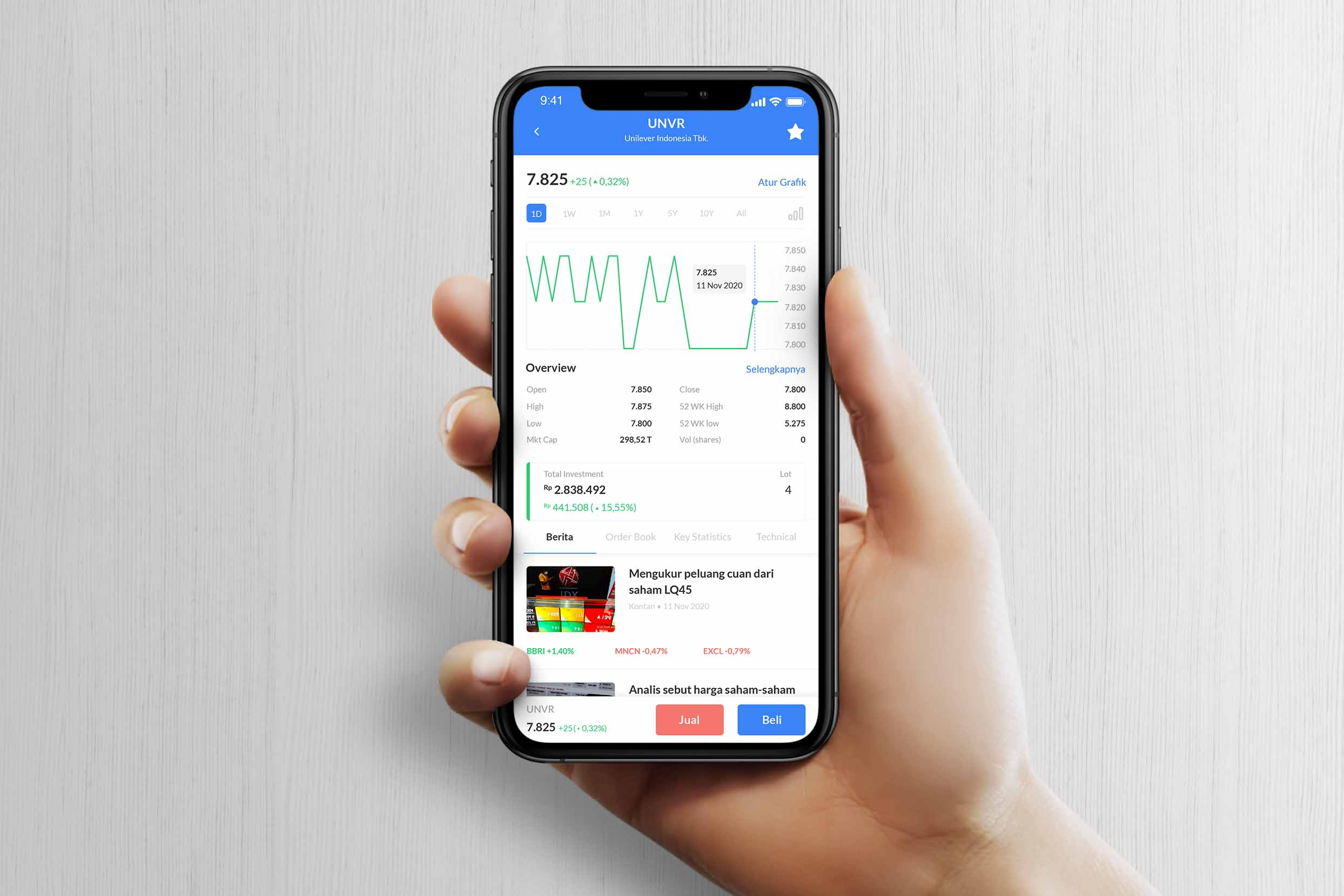Gabriella Sanjaya is a digital marketing officer in a startup in Jakarta. Since July, the 25-year-old has regularly been taking IDR 1.5 million (USD 106.86) from her monthly paycheck to buy shares on an investment app. The hot tip came from one of her female friends who told her that it’s much better than keeping it in a bank account.
Sanjaya was reluctant initially. The market is notoriously volatile bearing high risks and she felt that she had almost no knowledge on it. Her friend encouraged her to try different products, which appeared to be less risky as the providers are managing the portfolio. Tempted about it, she browsed several available platforms and decided on Bibit.
COVID-19 and the economic slowdown doesn’t seem to have stopped millennials from putting aside some of their money. Since last year, investment platforms have seen an influx of young retail investors with a keen interest in the markets. Apps such as Bibit, Ajaib, and Bareksa, which focus on stocks and bonds, have all reported an increase in users.
For Sanjaya, Bibit’s algorithm did the job of analyzing her risk profile and recommended which type of investment would suit her. “I just put the money in to see how much I get in return. It’s not as complicated as I thought,” she said.
Nadia Vetta, a Jakarta-based journalist, is sharing that sentiment. She opened an account with the same provider when she saw that many of her peers already owned stocks and bonds. “I’m not confident enough to directly enter the market and many people said that Bibit is easy to use for first-time investors,” she said.
Valuations on the rise
In the second week of January alone, two of Indonesia’s new investment companies closed their Series A funding rounds. Bibit was one of them, collecting USD 30 million from Sequoia Capital India and 500 Startups. Shortly after, Ajaib announced a USD 25 million injection from Alpha JWC Ventures and Horizon Venture. Both firms claim that millennials between the age of 25 and 35 make up most of their users.
“Millennial investors are very smart. They demand an easier, faster, cheaper, and smarter way to invest,” Ajaib’s co-founder and CEO Anderson Sumarli told KrASIA. Catering to their demand, the provider operates entirely via a mobile app where clients can open their accounts in a few steps.
Ajaib doesn’t set a minimum threshold, which attracts younger people who just like to test the waters with small amounts. Sumarli said that penetration in the country has been low because stock trading has traditionally been reserved for high net worth individuals who can afford high commissions when working with offline brokers. By eliminating that, millennials feel more encouraged to join the fray.
His company offers stock charts along with technical and fundamental analysis.There are also auto-trading features to assist beginners. Bibit includes a robo-advisor for mutual funds, which gives recommendations based on the user’s risk profile.
Continuously growing
Peter Abdullah Redjalam, director at the Center of Reform on Economics, sees different reasons for the boom in millennial investment. First, because of the pandemic, people have more time to read and have a basic understanding of the market. “This resulted in growth not only for online platforms but also for the mainstream channels,” he said. Citing data from the country’s financial services authority (OJK), the number of retail investors grew 56% year-on-year in 2020.
The online platforms are opening access to young investors with modest amounts of capital. “They can even invest only several tens-of-thousands of rupiahs. You don’t have to be rich to start with it,” Redjalam said, adding that services such as robo-advisory and automatic recommendations play an important part. Redjalam believes that even though the growth rate might not stay as high, people will still continue to invest.
In that sense, Ajaib’s Sumarli said that part of the fresh capital that his company just received will go towards a financial literacy campaign called #MentorInvestasi. “It’s to support the government’s effort to educate millennials on investing and financial planning,” he said.
